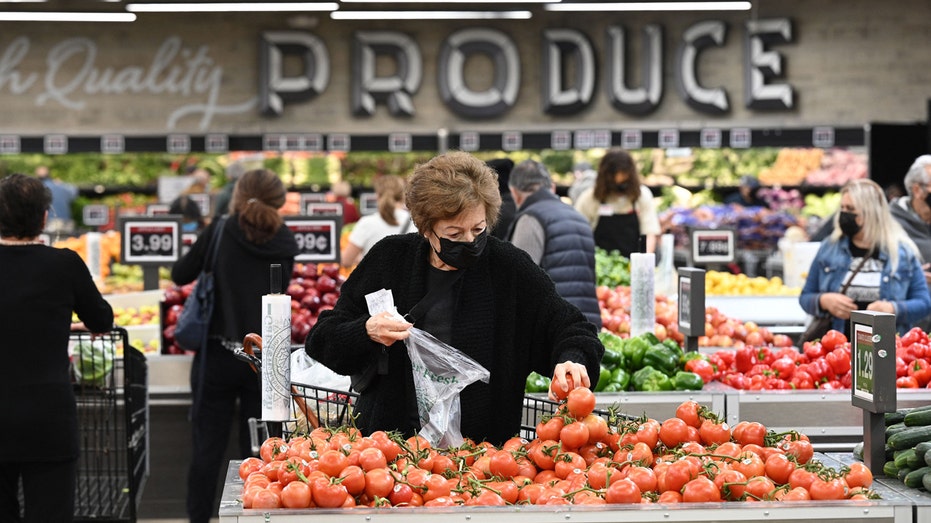Inflation gave most Americans a 2.7% salary cut in March
Average hourly earnings for employees declined 2.7% in March
Inflation at 40-year high for fifth consecutive month
FOX Business' Cheryl Casone reports on the latest inflation data, which showed another jaw-dropping figure as the war between Russia and Ukraine sent oil and gas prices spiraling higher in March.
The tightest labor market in years is fueling rapid wage gains for most workers – the only problem is that red-hot inflation is quickly eroding those increases.
The Labor Department reported on Tuesday that average hourly earnings for all employees actually declined 2.7% in March from the same month a year ago when factoring in the impact of rising consumer prices. On a monthly basis, average hourly earnings tumbled by 0.8% in March, when factoring in the 1.2% inflation spike.
MOST SMALL BUSINESSES SINCE 1974 ARE HIKING PRICES TO OFFSET INFLATION
By that measure, the typical U.S. worker is actually worse off today than they were a year ago, even though nominal wages are rising at the fastest pace in years. That's because inflation is also surging.
The government said in a separate report on Tuesday that the consumer price index – which measures a basket of goods including gasoline, health care, groceries and rents – rose 8.5% in March from a year ago, the fastest pace since December 1981. Prices jumped 1.2% in the one-month period from February, the largest month-to-month jump since 2005.
So-called core prices, which exclude more volatile measurements of food and energy, climbed 6.5% in March from the previous year – up from the 6.4% increase recorded in February. It was the steepest 12-month increase since August 1982.
Price increases were widespread: Energy prices rose a stunning 11% in March from the previous month, and are up 32% from last year. Gasoline, on average, costs 48% more than it did last year after rising 18.3% in March on a monthly basis as the Russian war in Ukraine fueled a rapid increase in oil prices. The March inflation data is the first to capture the full effect of the European war, which sent gas prices in the U.S. to the highest since 2008.
Food prices have also climbed 8.8% over the year and 1% over the month, with the largest increases in cereal and bakery products (10%), poultry, fish and meat (13.8%), fresh fruits and vegetables (8.1%), and eggs (11.2%).

People shop for groceries at a supermarket in Glendale, California January 12, 2022. ((Photo by ROBYN BECK/AFP via Getty Images) / AP Newsroom)
Used car and truck prices, which have been a major component of the inflation increase, are still up 35.3% from the previous year, but actually declined by 1.8% in the one-month period between February and March. Shelter costs are up 5% year over year and jumped 0.6% for the month.
The inflation spike has been bad news for President Biden, who has seen his approval rating tumble as consumer prices rise. The White House has blamed the price spike on supply-chain bottlenecks and other pandemic-induced disruptions in the economy, while Republicans have pinned it on the president's massive spending agenda and his energy policies targeting the oil and gas industries.
Federal Reserve policymakers have repeatedly warned that inflation disproportionately hurts low-income Americans – a point that Fed governor Lael Brainard repeated in a speech last week.
GET FOX BUSINESS ON THE GO BY CLICKING HERE
"While all Americans are confronting higher prices, the burden is particularly great for households with more limited resources," she said. "That is why getting inflation down is our most important task, while sustaining a recovery that includes everyone."





















